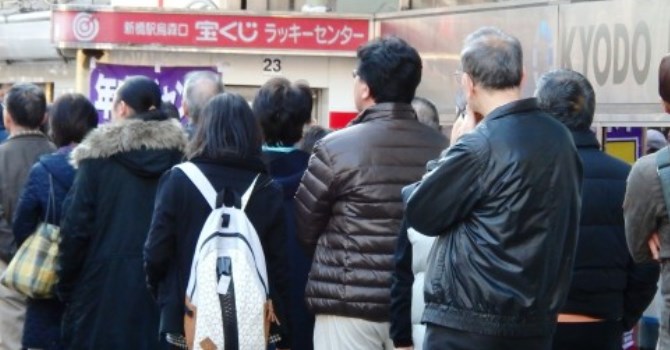
by Noriyuki Morimoto
Selling lottery tickets is a crime by law. The reason why this crime is committed openly is because it is exceptionally legalized by the Lottery Ticket Act.
The rationale of legalizing lottery is its purpose of financing local governments, which serves the public interest. The Lottery Ticket Act limits the seller of lottery tickets to local governments, and its purpose to financing local administration.
Lottery has a long history and is widely accepted by the public as something that offers dreams to commoners, and since it is culturally established, the Lottery Ticket Act utilizes it as a way for local governments to raise funds.
So, how much money is actually raised by local governments? According to the “the use of revenue and social contribution” in the official website of public lottery, the actual revenue in fiscal 2016 was 845.2 billion yen, of which 334.8 billion yen, or 39.6%, is “provided to prefectures and 20 designated cities for activities including public projects.”
Meanwhile, 395.9 billion yen, or 46.8%, was distributed as prize money, and the remainder was expenses etc. In other words, purchasing 10,000 yen worth of lottery tickets means that 1,300 yen will disappear in expenses, 4,000 yen will be donated to local governments, and 4,700 yen will be casted for a pure bet with zero expected earnings.
A bet with no expected earnings is the same as a 50-50 chance as in cho-han gambling using dice. In the case of the lottery, the expected revenue, which multiplies the prize amount by the weight of the number of tickets, is zero. That the expected revenue is zero in the essential part of the bet means that the expected revenue is negative when considering the share of the organizer. In the case of the lottery, the expected revenue will be minus 53%.
Then, why does lottery sell? According to the official website, in the survey of motives for purchasing lottery tickets conducted in April 2016, the top motivations were “winning prize money” (61.9%), “to dream big” (42.5%), “for entertainment” (32.9%), and “because it’s fun whether you win or not” (32.9%).
The reason lottery tickets sell transcends economic rationality to the expectation and entertainment of “dreams”.
[Category / Art Investment]

Chief Executive Officer, HC Asset Management Co.,Ltd. Noriyuki Morimoto founded HC Asset Management in November 2002. As a pioneer investment consultant in Japan, he established the investment consulting business of Watson Wyatt K.K. (now Willis Towers Watson) in 1990.

